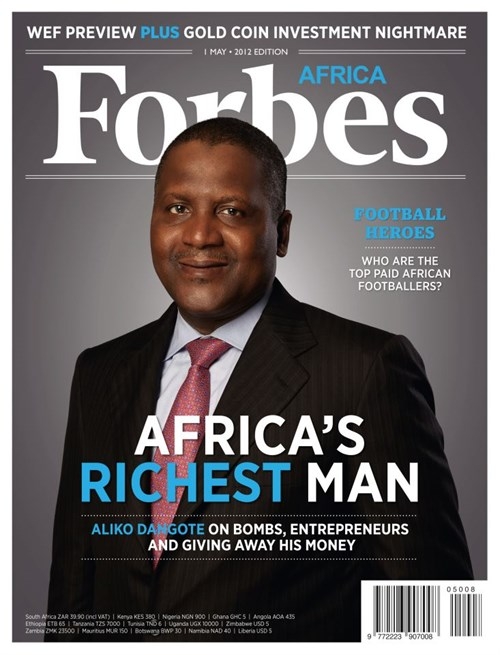
The first European explorers were amazed at the continent’s wealth. Now, after centures of slavery and colonialism, its economies are starting to strengthen
When Portuguese explorers first arrived on the east African coast at the turn of the 16th century, an anonymous recorder on the voyage of Pedro Alvares Cabral noted of Kilwa (off the coast of present-day Tanzania): “This island is small, near the mainland, and is a beautiful country. The houses are high like those of Spain. In this land there are rich merchants, and there is much gold and silver and amber and musks and pearls. Those of the land wear clothes of fine cotton and of silk and many fine things and they are black men.”
The “Africa rising” story of booming economies and growing middle classes is important in correcting the global perception of Africa, for Africa has not always been in decline. The 500 years after the European arrival in Africa saw an increasing integration of Africa into the global economy, but often on terms which worked against Africa’s interests: the slave trade through the end of the 19th century, then European colonial rule to the 1960s. The challenge of development has been the story since, as Africa struggled with the legacies of colonial rule, its marginal share of global trade, and corrupt and dictatorial leadership.
In the first decade of the 21st century, the tide seemed to have turned: six of the 10 fastest growing economies in the world were in sub-Saharan Africa: Mozambique, Rwanda, Angola, Nigeria, Chad and Ethiopia. While some benefitted from the rising oil price, Mozambique’s oil production was yet to come on line, and Rwanda and Ethiopia are not oil producers. As a region, sub-Saharan Africa grew at an average of 5% during the first 15 years of the new millennium, a sharp departure from the 1980s, which went down in history as Africa’s lost decade. The Economist once called Africa the “hopeless continent”. In its “Africa Rising” cover story in March 2013, the same magazine predicted that the average African economy will outpace its Asian counterpart.
This pendulum swing has been as refreshing as it has been uplifting for a continent that had misery and destitution as its key tropes. However, it is also true that poverty has remained widespread. Between 1990 and 2010 the number of people in poverty increased from 289 million to more than 413 million, compromising the prospects of meeting the first millennium development goal, of eradicating extreme poverty.
And the sharp decline in global prices for commodities such as oil and copper since last year have raised major challenges, especially in major oil-exporting countries such Angola and Nigeria where oil accounts for more than 90% of export earnings. Today Africa’s share of global trade remains less than 3%.
The revolution in the worldwide web, social media, and the proliferation of mobile phones are accelerating the pace of Africa’s economic development. Mobile telephony has already unleashed innovation in banking across the continent. Still, the Africa rising narrative is complex, as it extends beyond economics. The 1980s and 1990s saw a brain drain from Africa, as academics and professionals relocated to the west. The focus has now shifted to brain circulation, with the rise of African trans-nationals and schemes that allow Africans living outside the continent to contribute to its development. . The strengthening of institutions that produce knowledge is central to Africa’s future.
The internet, social media and the proliferation of mobile phones are accelerating Africa’s economic development
We see glimpses of a confident Africa in how young people engage with western and diasporic influences. Ghana’s hiplife music, for example, represents the indigenisation of American hip-hop. Youth activism continues to play a key role in the democratisation process that is sweeping through Africa. Their embrace of social media signals a new energy that is finding expression in the creative arts and popular culture. But the frustration of social aspirations is also evident in the thousands of Africans who attempt the perilous Mediterranean journey to Europe, convinced that a brighter future lies beyond the continent.
The rise of a prosperous Africa will ultimately be based on the emergence of an assured African, confident in knowledge and identity, at home in Africa and the world at large. It was this spirit that surprised the Portuguese visitors to Kilwa in 1500.
Two centuries earlier, the Muslim king of Mali, Mansa Musa, made a pilgrimage to Mecca in 1324 with a stop in Cairo. The Arab historian Chihab al-Umari, who visited Cairo 12 years later, wrote that Mansa Musa “left no emir or holder of a royal office without a gift or load of gold, he and his company gave out so much gold that they depressed its value in Egypt and caused its price to fall”. This was at a time when two-thirds of the world’s supply of gold came from west Africa. Mansa Musa’s extravagance brought Mali to the attention of the world and Mali would appear on the map of the world drawn by Angelino Dulcert of Majorca in 1339 and on subsequent maps. There was a time when the economic actions of Africa’s rulers had worldwide consequences.
Africa is rich in natural resources. Africa’s knowledge base is expanding. Africa could still ultimately reclaim the position it occupied when the Portuguese explorers first arrived. But that story will be told not only in national income statistics. It is also a story of Africa’s cultural renaissance and the inevitable birth of a new African personality.
Credit; Guardian.com








